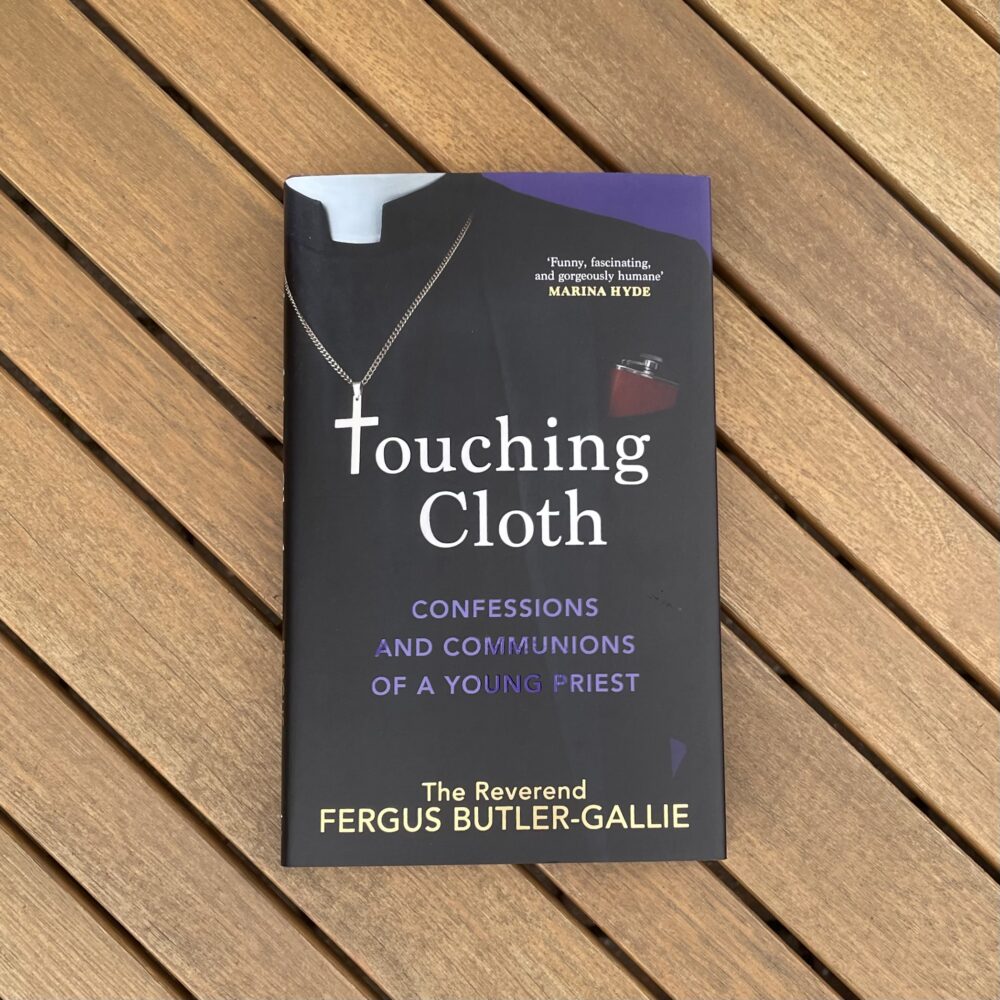I’ve been reading ‘Touching Cloth’ by Fergus Butler-Gallie

Butler-Gaille is a young Church of England priest, and this—not his first book—is a recently-published memoir of his first year following ordination. It’s rare that a book makes me actually, really, laugh out loud, but this one did that several times over. It also affirmed Butler-Gaille’s deep-seated faith, while recognising some of the frictions and absurdities of the institution of the Church of England.
I’ve often said that there is a lot of crossover between the occupations of a doctor and a priest, and this book underlined that more than ever. The parallels are manifest, from the constant requirement not to show judgement of people who have got themselves in the most peculiar pickles to the value of simply listening to someone unburden themselves, even when solutions aren’t forthcoming.
This book helped me to see the similarities in the organisational absurdities, too—just as my employer likes to talk in managerial jargon and to proceed with baffling decisions that priorities the oddest things, so the Church of England seems to act. Yet Butler-Gallie’s unwavering dedication to his faith shines through, as I hope my unwavering dedication to my patients does.
If it weren’t for my total absence of faith, I think I’d make a great priest—possibly a better priest than I am a doctor.
This short book is well worth reading. Here are some quotations I noted down from it:
Much of the time people describe medical phenomena that doctors have assured them simply are not there. Failing to find a medical solution, they come to a priest, crediting dark powers or supernatural attacks as being responsible for anything from tinnitus or corns to serious illnesses or even impending death. A willingness to listen, no matter how far-fetched the issue may seem, saying a prayer with the sufferer, allowing them to feel safe in church, is often enough to make these attacks go away. Sometimes all people want is someone to take them seriously.
Yet, as unusual as it may all seem in the twenty-first century, the Church of England still keeps, in every diocese – the chunk of the country under a particular bishop – a diocesan exorcist. These days they call them ‘diocesan deliverance ministers’, which makes them sound like the sort of person who’d leave you a ‘We’re sorry we missed you’ slip after knocking on your door with all the force of a gnat. ‘We tried to deliver your exorcism at ILLEGIBLY SCRAWLED TIME but sadly you were out. Please come to INCONVENIENT ADDRESS between HOURS YOU COULDN’T CONCEIVABLY MAKE to have your devil/demon cast out.’
In fact, they’re highly trained and experienced clergy, who either have degrees in psychiatry or act only in accordance with a psychiatrist to whom all instances of paranormal activity that seem to go beyond the explicable are referred.
Perhaps the most influential medical saint from Naples (just to keep things to a nice, broad category) isn’t Januarius but St Aspren, a Neapolitan convert from the first century whose prayers were asked for help with headaches and who, of course, was the inspiration for the brand name Aspirin.
Advent was historically a time when clergy would preach about the ‘Four Last Things’: death, judgment, Heaven and Hell. Unsurprisingly, the Church doesn’t bang on too much about them during Advent. Imagine the festive scene:
‘Ah, a knock at the door! I do hope it’s carol singers. “Jingle Bells” is my favourite.’
‘Hello, madam, have you heard the one about an unending lake of fire?’
That said, I think we should keep one eye on the apocalyptic at this time of the year. The temptation to be cheerful, generous and well fed for the entirety of December not only takes the shine off Christmas, which becomes one long hangover, but it’s not really possible for some people. I found that for a lot of people December really was a truly miserable time, replete with less than jovial ghosts of Christmases past. ‘Jingle Bells’ really does make some people think of torment. Lots of quiet tears are shed among the tinsel. Having a period of the year that says, as Advent is supposed to, ‘This is a bit crap, but something better is coming,’ is actually more hopeful a message for those people than unending smiling.
This post was filed under: Post-a-day 2023, What I've Been Reading, Fergus Butler-Gallie.